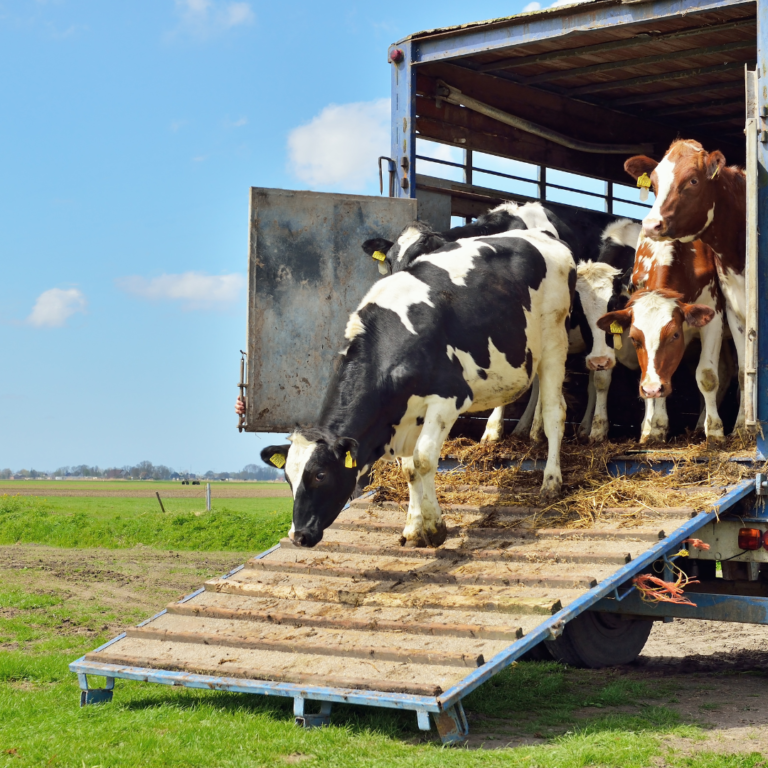The study marks the first comprehensive assessment of the adequacy of these regulations.
An interdisciplinary study published in the Royal Society Open Science reveals inadequacies in the regulations of five countries regarding animal transportation. Scientists specializing in animal welfare and a law professor examined animal transportation regulations in Australia, Canada, New Zealand, the EU (including the UK), and the US.
Led by researchers from the universities of Bristol, Essex, and British Columbia, the study marks the first comprehensive evaluation of the suitability of these regulations, highlighting serious deficiencies in animal protection during long journeys.
Livestock transportation, a stressful experience for most farm animals at some point in their lives, involves extended periods without access to food, water, or rest. Researchers analyzed four key risk factors in livestock transportation: fitness for transport, travel duration, weather conditions, and available space. The study focused on the regulatory structure aimed at preventing animal welfare issues.
Findings from the research underscore the need to improve regulations and establish future guidelines in all countries. For instance, the absence of travel duration limits for all animals allows for journeys spanning several days. Additionally, not all countries require periodic rest stops on long journeys, and those that do often impose insufficient times for meaningful recovery.

Updating transportation regulations based on the latest scientific knowledge would be a significant step toward enhancing animal welfare in this process, aligning industry practices with prevailing social values.
The research team reviewed recent and proposed changes in regulations, not yet enacted into law, as well as various options under consideration. Dr. Ben Lecorps, co-author and professor of Animal Welfare at the University of Bristol’s Veterinary School, concludes that current regulations are insufficient to ensure alignment with desired objectives. He highlights that the analyzed countries do not provide adequate protection to livestock during journeys, as critical risk factors, such as excessively long trips or exposure to heat, are not adequately addressed.
Dr. Eugénie Duval, co-author and professor at the University of Essex Law School, suggests that, while some regulations may not necessarily reflect the latest scientific evidence, some are more specific than others. She proposes that regulations could be improved by combining positive aspects from different regulatory frameworks, such as Canada’s fitness for transport and the EU’s specific temperature thresholds for vehicles, along with proposals from some countries, like the ban on exporting outside the EU borders. This could represent a significant advancement in preserving animal welfare during transportation.

The story of the first car race in Paris: a historic hit in 1894
Paris stands not only as a cultural and artistic epicenter but also as a pioneer in car racing In the history of automotive racing, Paris

Top states for driving in the United States in 2024
A WalletHub study compared all 50 states to determine the best driving conditions Road safety and quality are central concerns for drivers. And while the

Briefs: marijuana reclassification, vehicle fees, and climate grants
The trucking industry goes through new legislation, taxes and subsidies Questions about the proposed reclassification of marijuana The Owner-Operator Independent Drivers Association (OOIDA) supports the

Impact of traffic pollution: study reveals increase in blood pressure
A study from the University of Washington in Seattle reveals that the main cause of significant increases in blood pressure might be traffic-related gasses A

The benefits and careers of a Commercial Driver’s License
Having a CDL opens multiple doors within the trucking and transportation industry Having a Commercial Driver’s License (CDL) opens multiple doors within the trucking industry,

Sharing the road with a truck: steps to ensure your safety
Caution around blind spots and anticipating truck maneuvers are essential to ensuring everyone’s safety Truck drivers face significant challenges on the road due to their
